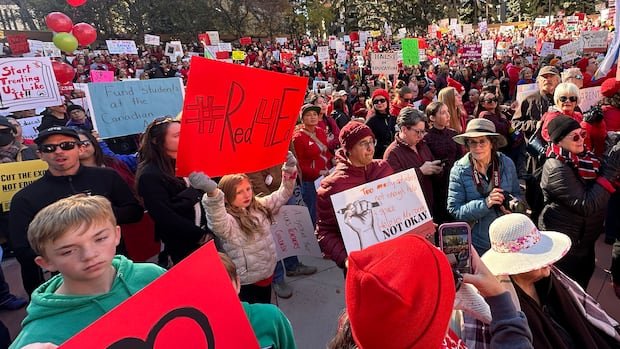Outdoor markets are a basic summer element in Montreal: Jean-Talon, Atwater and Maisonneuve They are popular for both residents and tourists.
But some merchants in the market face a steep rent this year, who warn that they could lead to higher prices for customers.
“We are not appreciated,” said Patrick Marcil de Center Jardin Atwater. “Because we need to build the entire market and then we have an increase in our rent.”
The markets are property owned by the city administered by a non -profit organization called Montreal Public Markets.
General Manager Nicolas Fabien-Ouellet says the organization has been trying to standardize rental agreements with stores in all its locations, even in the markets
“It varies from $ 40 per day to 90 per day, the new lease structure,” he said. “But the pressure we have as non -profit, we have to pay taxes to the city of Montreal, we have to pay the rent to the city of Montreal, but we also have responsibilities in terms of maintaining the buildings.
Fabien-Llet insisted that, although the rentals of some merchants are increasing, others are lowering according to pedestrian traffic in the part of the market.
Earlier this year, the merchants were informed of their new income from this summer. Store owners say that jumps vary from 20 to 50 percent.
For Satay Brothers, it is increasing from approximately $ 2,000 to $ 4,000 per month.
“I was surprised how the last time it was, that call,” said fellow Marco Valiquette. “They really mentioned anything about it and, suddenly, we are doubling the rent.”
That brief notice is part of the concern.
“Unfortunately, I have lost confidence on the board because I feel that the important information has hidden me,” said Fanny Beaudin of Aux Trovailles Gourmandes de Fanny.
Some merchants who rent the space in the city’s open markets saw their rent almost double this year. Montreal Public Markets, the non -profit organization that manages positions in the Atwater and Jean Talon markets, says that he is trying to standardize the rental agreements with stores in all his locations.
Fabien-Llet said his group has been listening to merchants and delayed when they had to sign the contracts in April. They also allowed stores to pay the increase gradually for three years, but independently, store owners say they feel betrayed and underestimated.
Merchants say they will have to transmit additional costs to customers or leave forever. However, Fabien-Llet said the changes were necessary to maintain their long-term long-term markets.
Only three years ago, after a pilot project in the Jean-Talon market, the group chose to offer stables For promising farmers in half of the price and expanding offered to the Atwater and Maisonneuve markets. That was part of an effort to bring new farmers to the market.
When asked about the unexpected rental increases, Montreal spokeswoman, Camille Bégin, said the city does not establish the income charged to producers and vendors in public markets. She said it depends on the public markets of Montreal.
According to its lease with the city, the organization must sub -lead spaces to the market value and must implement a fair process to ensure that all permanent substitutes contribute to the financial burden of the markets, Bégin said.
The understanding of the city is that rental changes have been accompanied by communication efforts and exchanges with members in recent months, he said.
When it was contacted, the official opposition party of Montreal, the Montreal team, indicated its efforts of 2023 to highlight the maintenance deficit of $ 20 million facing the public markets of Montreal.
The party presented a motion to renew the organization’s lease and including funds for market maintenance in the next 10 -year working capital program, with investments from 2024. The motion motion motion was adopted in October 2023.









